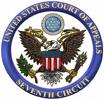Seventh Circuit Criminal Case of the Week: What Is a Crime of Violence?

The Armed Career Criminal Act and § 4B1.1 of the federal sentencing guidelines both provide for lengthened prison terms for certain defendants with three or more prior convictions for crimes of violence. It’s clear that certain prior convictions qualify (e.g., rape and armed robbery), but there are a surprisingly large number of offenses in the gray area between violent and nonviolent.
As I discussed in an earlier post, the Supreme Court recently developed a new definition for “crime of violence” in Begay v. United States, 128 S. Ct. 1581 (2008), in which the Court held that prior DUI convictions do not trigger ACCA’s fifteen-year mandatory minimum. Begay cast a lot of circuit-court precedent into doubt, and the Seventh Circuit has been struggling ever since to develop a consistent, coherent approach to identifying what types of offenses count as “violent.” (See, for example, this post.) Meanwhile, the Supreme Court has also remained active in this area. Last term, for instance, the Court held that failure to report to prison and walkaway escapes are not crimes of violence in Chambers v. United States, 129 S. Ct. 687 (2009). And the Court recently granted cert in Johnson v. United States to decide whether a battery offense counts as violent.
Reflecting the turbulence in this area of the law, the Seventh Circuit had three — count ’em, three — notable new opinions dealing with the “crime of violence” question last week.

 Splitting the difference is a tried and true tactic for resolving disputes. I use this tactic all the time when I mediate conflict between my kids. I also used it with great success to settle cases in practice. But is splitting the difference an acceptable way for judges to resolve disputes?
Splitting the difference is a tried and true tactic for resolving disputes. I use this tactic all the time when I mediate conflict between my kids. I also used it with great success to settle cases in practice. But is splitting the difference an acceptable way for judges to resolve disputes? 